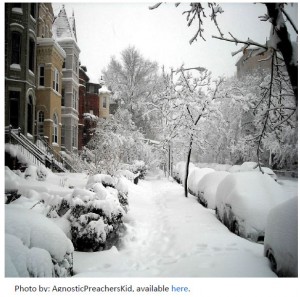Mayor Bowser’s creation of a “housing navigator” team to help homeless families find apartments and negotiate with landlords is an important first step to providing the stability families need to do things like find a job and help their children succeed in school. It also is one key way to reducing the city’s over-reliance on shelter.
Homelessness is a problem that goes deeper than not having a roof of your own. It’s much more than an inconvenience. Families that don’t know where they’ll spend the next night can’t make the most basic plans to ensure their children’s wellbeing or to work toward a better future.
 For example, a parent might get a job that is easy to get to from shelter only to have to quit because the job is hard to reach from the new home.
For example, a parent might get a job that is easy to get to from shelter only to have to quit because the job is hard to reach from the new home.
As the District has struggled in recent years with an alarming increase in family homelessness, one of the biggest challenges has been to get families out of shelter quickly. Even with the availability of Rapid Re-housing subsidies to help pay rent, it is hard to find housing in DC’s competitive market. Many homeless families appear to be a risk to potential landlords, and a large share of homeless families in DC are young and have limited experience securing housing. The longer it takes to get out of shelter, the longer it takes for families to get back on their feet and the less space there is for other newly homeless families. Getting people get into permanent housing also saves money; it costs the District about $150 a night for every family in a shelter.
The new “housing navigator” team will speed up the move-in process by helping families find apartments and negotiating with landlords to reduce rents and overlook poor credit and rental history. The team will also expedite required housing inspections and other paperwork. In other communities, this kind of coordinated, personalized assistance has proven effective.
Next, the District needs to build on this good start. Strategies that have worked elsewhere to ease homelessness include extending the length of temporary rental aid when it is clear a family needs it to succeed, and finding long-term help for families facing challenges paying rent on their own after the assistance ends.
To print a copy of today’s blog, click here.
